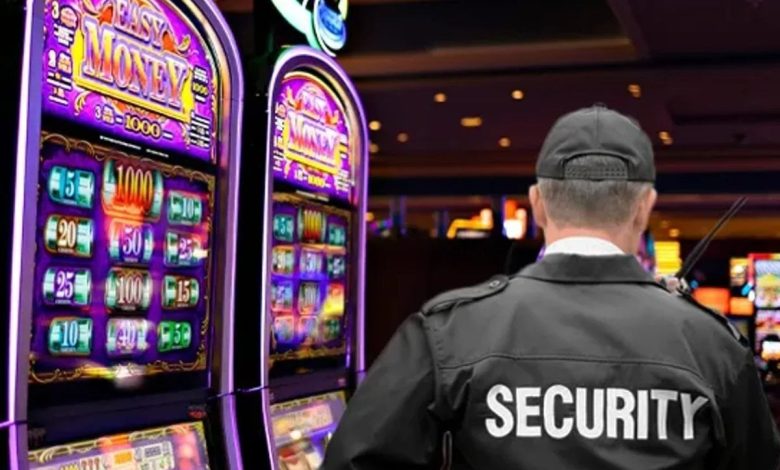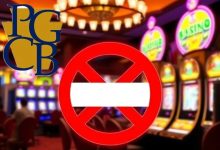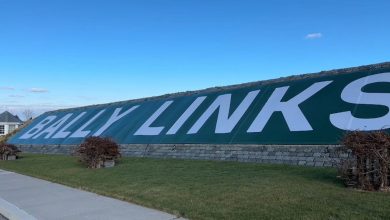Dependancy Specialists Urge Pennsylvania To Rethink Self-Exclusion

Dependancy specialists and psychological well being therapy suppliers are encouraging gaming regulators in Pennsylvania to rethink a proposed change to the state’s self-exclusion program for on line casino playing.
People on the Pennsylvania Gaming Management Board’s on line casino self-exclusion record can not enter a bodily on line casino after their exclusion interval ends until they efficiently apply to have their gaming privileges restored. State gaming regulators have proposed lifting the submitting mandate, however habit specialists say that may be a unhealthy guess. (Picture: On line casino.org)
In October, the Pennsylvania Gaming Management Board (PGCB) proposed an modification to the on line casino self-exclusion program.
Below the accountable gaming protocol’s present construction, a self-excluded particular person should apply for reinstatement of their gaming privileges as soon as their one- or five-year exclusion interval culminates. Self-excluded lifetime bans are everlasting and can’t be reversed on the particular person’s request.
The PGCB says the reinstatement submitting necessity ends in some excluded individuals unknowingly trespassing casinos pondering that their exclusion interval had concluded. The PCGB’s three different self-exclusion applications for iGaming, video gaming terminals (VGTs), and fantasy sports activities mechanically restore an individual’s entry to these verticals following the tip of the exclusion interval.
Therapy Suppliers Push Again
The PGCB fielded public feedback on the proposed change to the on line casino self-exclusion program. Practically all submissions had been in opposition.
The Pennsylvania Division of Drug and Alcohol Applications (DDAP) wrote the gaming board to emphasize that the automated restoration of on line casino privileges for individuals who self-banned carries vital threats to their ongoing restoration from downside playing.
People in restoration from downside playing are sometimes intimidated to join a lifetime dedication to self-exclude. They discover it extra acceptable for them to decide on a one- or five-year dedication, whereas additionally realizing that these phrases won’t expire in the event that they don’t need them to. Robotically eradicating a person from a self-exclusion record, with out them requesting it, might result in relapse from downside playing restoration,” mentioned Amy Hubbard, the DDAP’s supervisor of its Compulsive Drawback Playing Part.
Hubbard really useful that the PGCB maintain the on line casino self-exclusion program as is. It’s a place shared by Ken Martz, president of the Pennsylvania Affiliation of Dependancy Professionals.
The people in this system undertook the safety of the self-exclusion program based mostly on the understating that it might stay in place till they affirmatively revoked the safety. Altering this energetic safety with out their consent and approval damages the restoration assist that was requested,” Martz wrote.
Martz agrees with the PGCB that modifications to the state’s self-exclusion applications are wanted, however he argues it’s the three different initiatives that ought to change to align with the on line casino self-exclusion protocols for reinstatement.
“To strengthen assist for these battling playing behaviors, we advocate standardizing self-exclusion throughout all gaming platforms — iGaming, fantasy contests, and VGT — to match the present construction for casinos,” Martz added.
Relapse Threat
The PCGB argues the on line casino self-exclusion program change would shield self-excluded individuals from potential trespassing costs and reduces the Board’s administrative load.
Nevertheless, automated restoration of gaming privileges, greater than a dozen psychological well being and habit counselors mentioned in submitted feedback, shortens an issue gambler’s odds of relapse.
Eradicating them from the record with out their express request will increase the chance of relapse, particularly throughout moments of weak spot,” a letter from the Higher Institute signed by quite a few licensed therapists and councilors in Pennsylvania learn. “Relapse can have devastating penalties, together with monetary smash, relationship breakdown, and even suicide. This coverage change will increase the potential for such tragic outcomes.”
The Higher Institute, which offers remedy {and professional} companies throughout the commonwealth, says the PGCB’s proposal contradicts client safety fundamentals.
“This variation straight contradicts that precept by making it simpler for people to return to playing environments regardless of prior makes an attempt to self-protect,” the letter added.
The state’s casinos largely avoided commenting on the proposed change. One letter questioned if casinos would possibly goal newly eliminated excluded gamers ought to the PGCB’s change be enacted.





